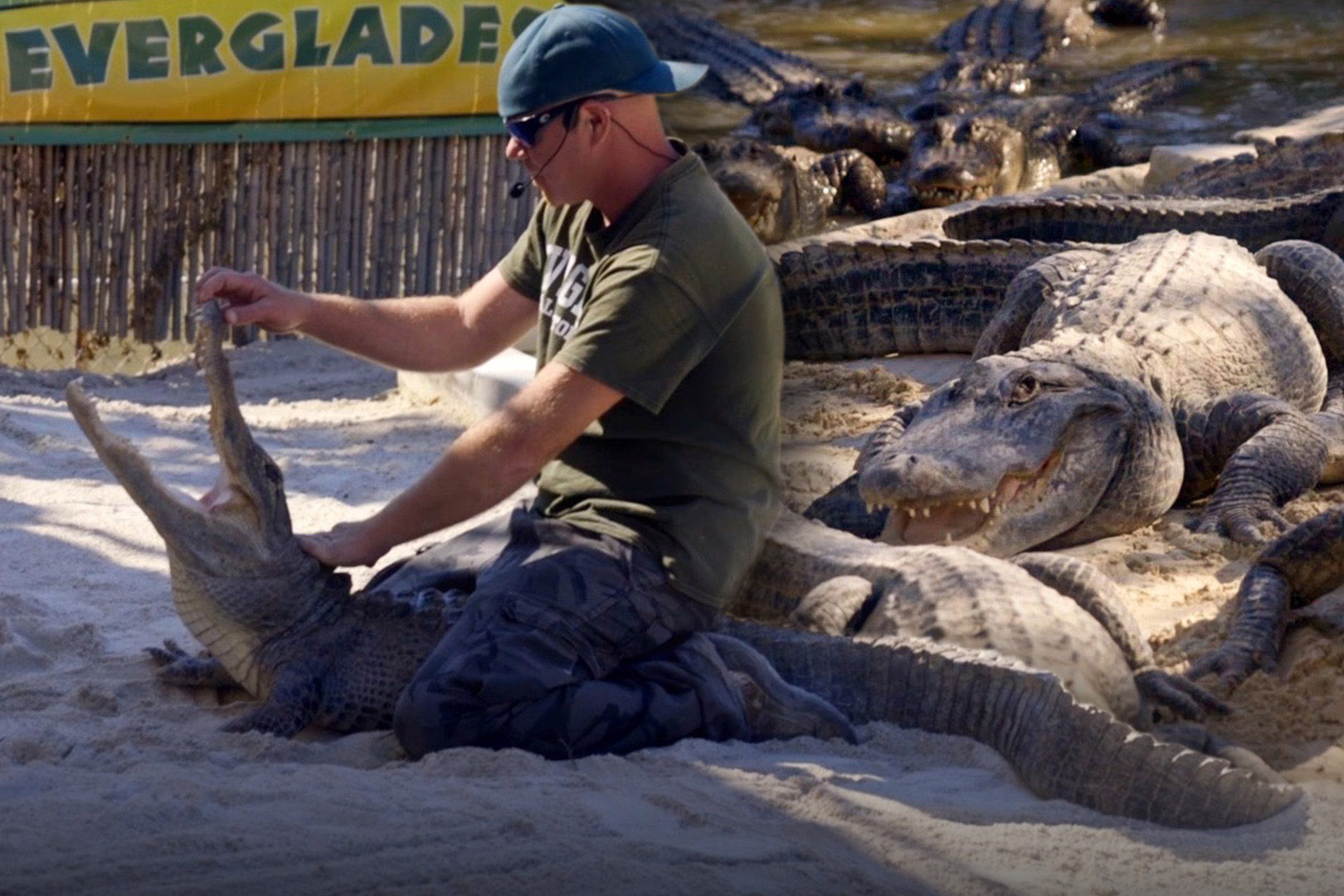

How It's Done:
NEON SIGNS
Grainger Everyday Heroes: Alligator Handler
By Grainger Editorial Staff 7/20/20
Meet Travis Slater, Animal Handler at the Everglades Animal Farm, who says he doesn’t have a job, but a paid hobby. Get an inside look at how Travis care for hundreds of alligators, as well as crocodiles, snakes, tortoises, iguanas, birds, and even a panther.
I came here from another airboat company, but I was mainly an [airboat] driver. An opportunity [came up] here so I'm strictly [taking care of the] animals. My name's Travis [Slater], and I am the animal handler here [at the Everglades Alligator Farm in Homestead, Florida].
I’m the show guy, [my role] is assistant curator [so I take] care of the animals. That's pretty much my job title, but [my day-to-day job] does vary. [There are] a lot of other things [I do] around here as well.
I believe [the Alligator Farm opened in the] early '80s. It started out with a guy digging out a hole and adding a few alligators to it. It was more like a salvage yard. This guy just liked alligators and then it just transformed into [a farm] over the decades. We've got crocodiles [here] and a panther over there. We also have quite a few snakes on exhibit, some iguanas and some tortoises in the back.
On a typical day I get here and do a walk around to make sure [none of the animals escaped]. If [one did escape], I have to put it back [in its pen]. It doesn't happen very often, but it does occasionally happen [even though the alligators] can't climb. [I prepare] to do shows and get the snakes ready. I do my first show starting at 10 o'clock. The second show is at 11 o’clock [featuring] the alligators. I take care of animals at our exhibit throughout the day. [If a pen] needs to be cleaned or [an animal] fed, I’m going to go ahead and take care of it.
We have some grow-up pens where the hatchlings go. [We put] wire over [the pen] so birds and other predators can't get to [the hatchlings]. Once they’ve reached a certain size, we move them [to another pen]. Once they get too big for the grow up pens, they'll actually be moved to the juvenile pen back there. Once they outgrow [the juvenile pen], they go in [the pen] with the big boys.
About every two to three weeks, we [go through] roughly one thousand to fifteen hundred pounds of meat right there on the beach and the breeding pond. Whoever is really hungry is going to be right there [waiting]. It's like a big pile of meat, with an even larger pile of alligators on top of it.
This job is actually more like a paid hobby to me, [where I] get to educate the people. [I teach them] about the reptiles. I love working with the kids, just educating them. Working with the animals has been a dream of mine since I was little, it’s a dream come true. I don't have a job; I have a paid hobby. [There are] not a lot of people who can say that.
![]()
The information contained in this article is intended for general information purposes only and is based on information available as of the initial date of publication. No representation is made that the information or references are complete or remain current. This article is not a substitute for review of current applicable government regulations, industry standards, or other standards specific to your business and/or activities and should not be construed as legal advice or opinion. Readers with specific questions should refer to the applicable standards or consult with an attorney.






